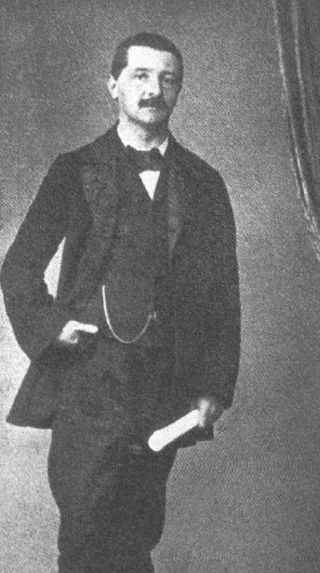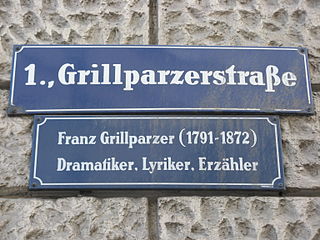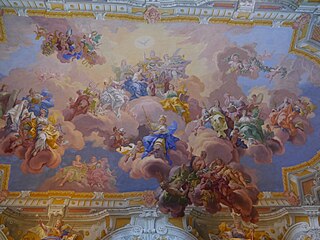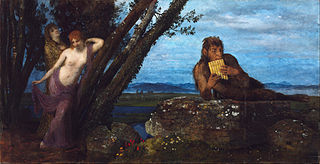Related Research Articles
Fritz Schachermeyr was an Austrian historian, professor at the University of Vienna from 1952 until retirement.

Ernst Hilmar was an Austrian librarian, editor, and musicologist.

The Messe für den Gründonnerstag, WAB 9, is a missa brevis composed by Anton Bruckner in 1844.

Asperges me, WAB 4, is a sacred motet composed by Anton Bruckner. It is a setting of the Latin Asperges me, the antiphon used for the celebration of Asperges.

Libera me, WAB 21, is the first of two settings of the absoute Libera me, composed by Anton Bruckner in c. 1843.

Inveni David, WAB 19, is a sacred motet composed by Anton Bruckner in 1868.

Vergißmeinnicht (Forget-me-not), WAB 93, is a cantata composed by Anton Bruckner in 1845.

The Volkslied, WAB 94, is a patriotic song composed by Anton Bruckner in 1882 for a competition for a Hymne für das Deutsche Volk in Österreich.

Sternschnuppen, WAB 73, is a song, which Anton Bruckner composed for his own men's voice quartet in c. 1848 during his stay in the Sankt Florian.

Träumen und Wachen, WAB 87, is a song, which Anton Bruckner composed in 1890 to celebrate the 100th anniversary of Franz Grillparzer's birth.

Der Lehrerstand, WAB 77, is a song composed by Anton Bruckner in c. 1847 during his stay in Sankt Florian.

Das edle Herz, WAB 65, is a song composed by Anton Bruckner in c. 1851 during his stay in St. Florian.

Frühlingslied, WAB 68, is a lied composed by Anton Bruckner in 1851 for the name-day of Aloisia Bogner.

Wie bist du, Frühling, gut und treu, WAB 58 is a lied composed by Anton Bruckner in 1856 on a text of Oskar von Redwitz.

Herbstkummer, WAB 72 is a lied composed by Anton Bruckner in 1864.

Mein Herz und deine Stimme, WAB 79 is a lied composed by Anton Bruckner in 1868.

Im April, WAB 75 is a lied composed by Anton Bruckner in c. 1865.
Carl Debrois van Bruyck was an Austrian pianist, composer and music writer.
Reinhold Zimmermann was a German school headmaster, choir conductor and musicologist.
References
- ↑ Internationale Hans-Rott-Gesellschaft Wien, "Dr. Uwe Harten" . Retrieved 7 November 2019.
- ↑ Uwe Harten: Carl Debrois van Bruyck (1828–1902). Leben und Wirken als Musikschriftsteller. Nebst Familienchronik, Kompositions- und Schriftenverzeichnis.
- ↑ Christa Flamm: Leopold Koželuch: Biographie und stilkritische Untersuchung der Sonaten für Klavier, Violine und Violoncello nebst einem Beitrag zur Entwicklungsgeschichte des Klaviertrios. Maschinschriftl. Dissertation. Vienna 1968. Exemplare: Vienna University, ÖNB.
- ↑ Hans Rott (1858–1884). Biographie, Briefe, Aufzeichnungen und Dokumente aus dem Nachlaß von Maja Loehr (1888–1964) on WorldCat
- ↑ Max Kalbeck zum 150. Geburtstag: Skizzen einer Persönlichkeit on WorldCat
- ↑ "Die Sache, für die mein Leben einsteht". Studien zu Leben und Werk des Wiener Komponisten Hans Rott on WorldCat